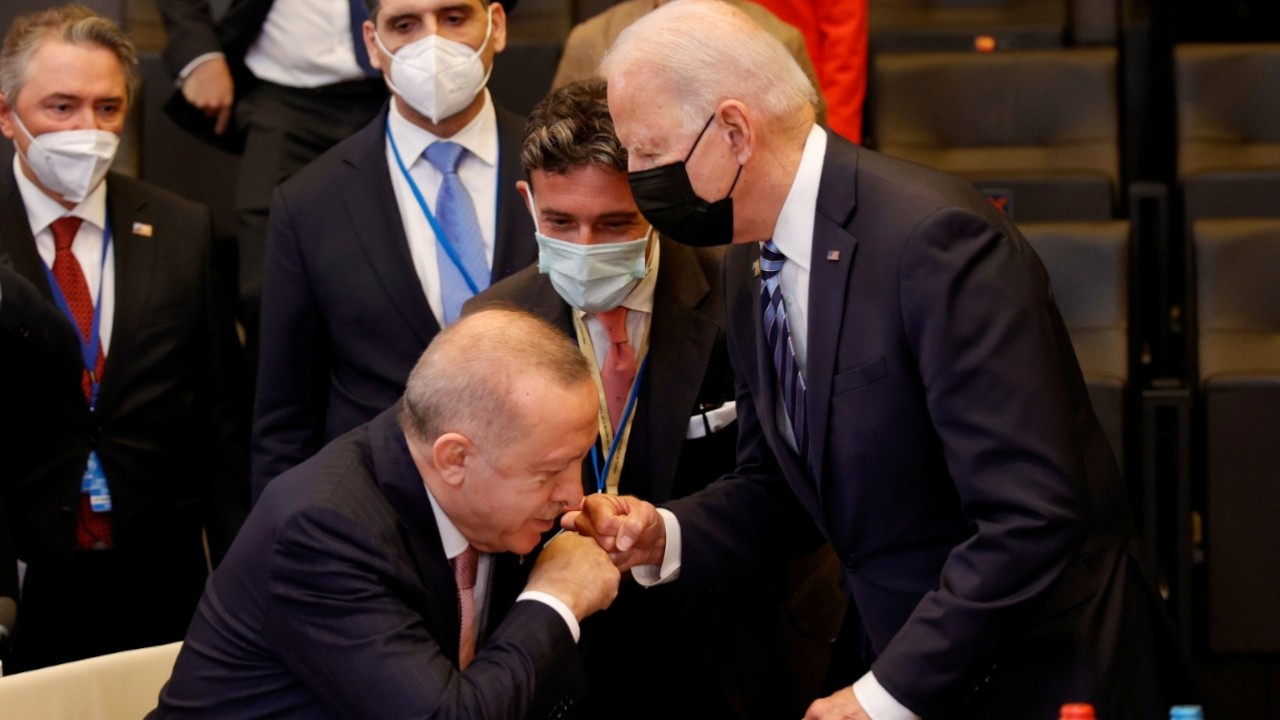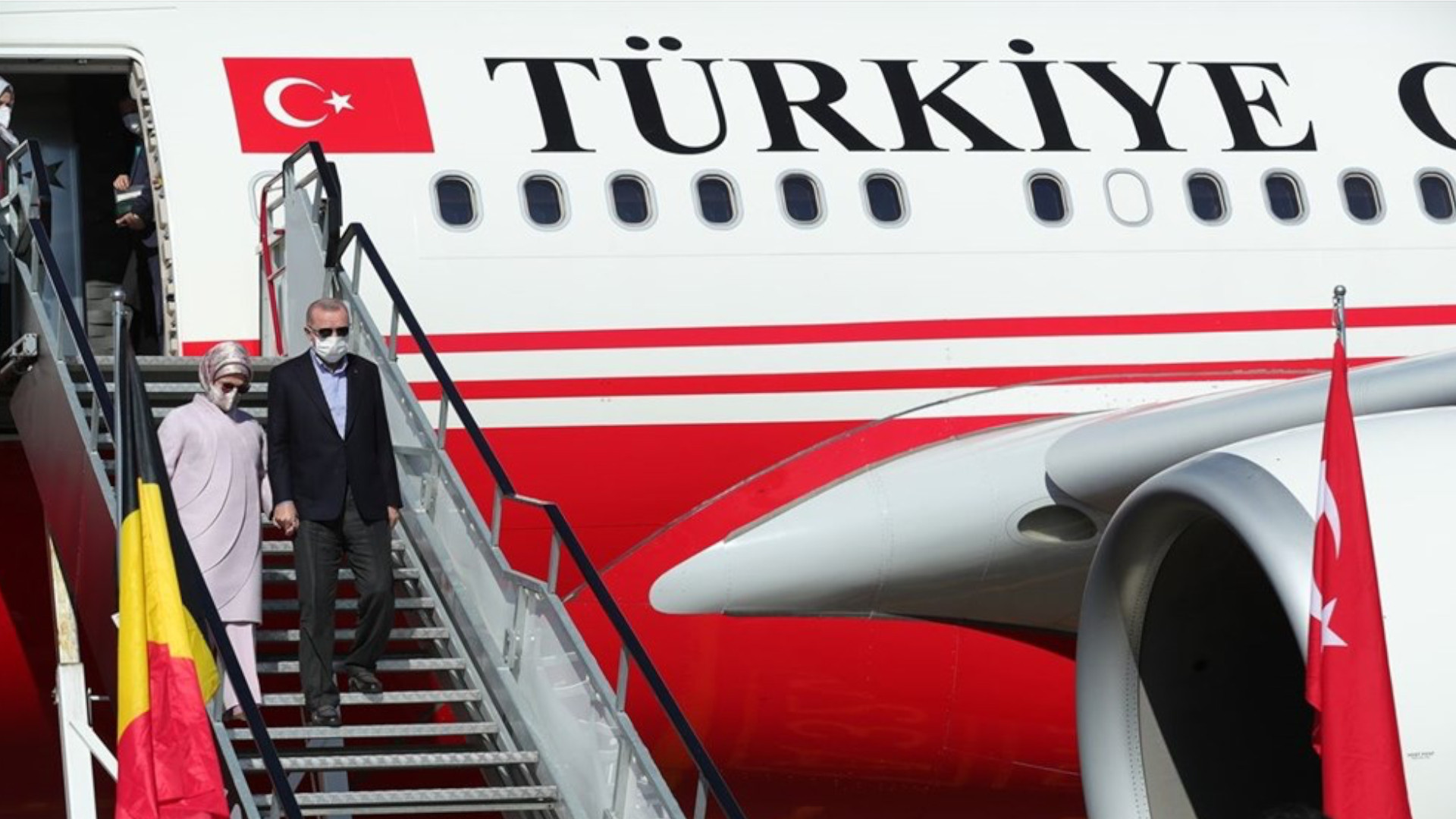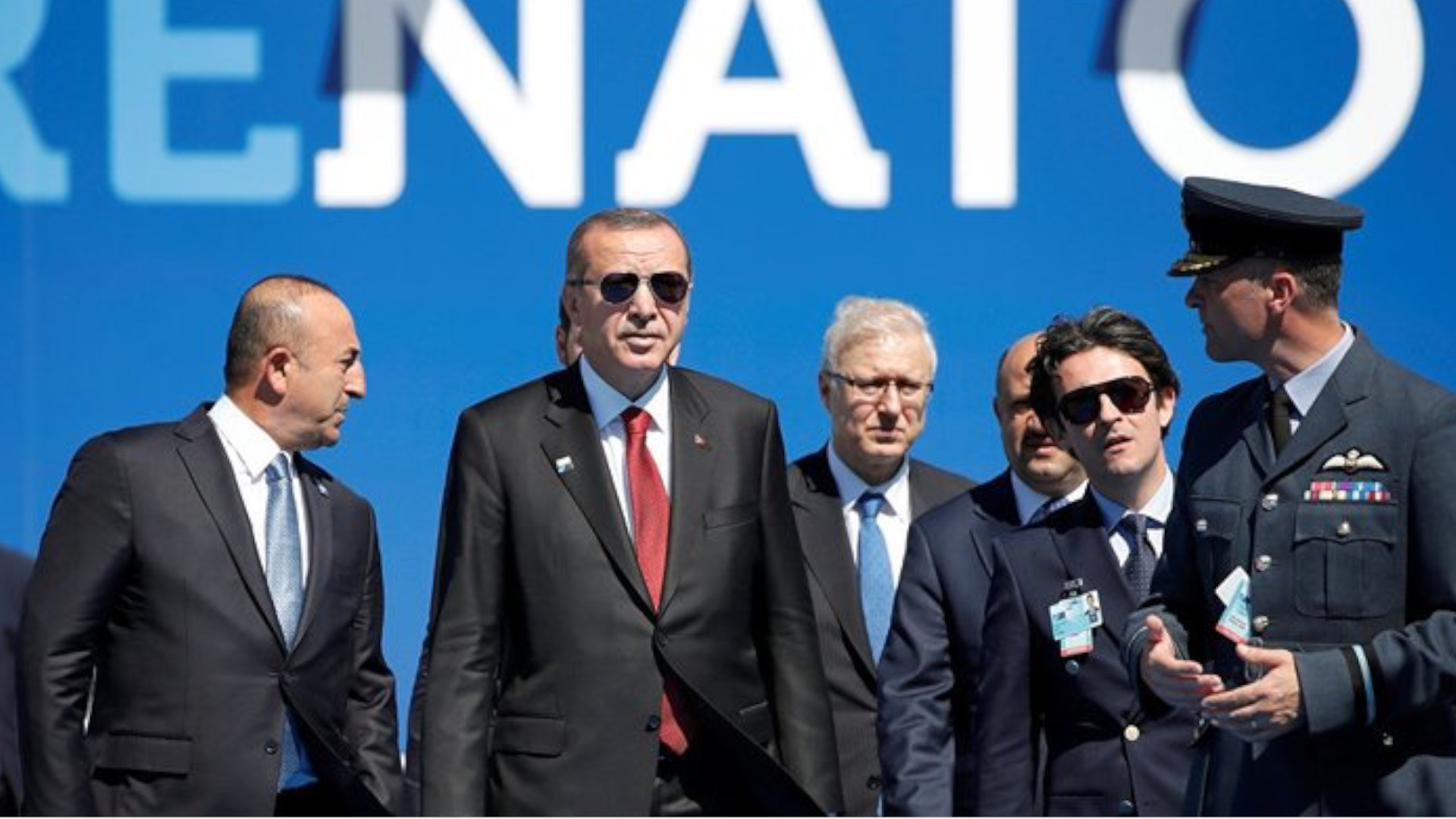No breakthrough in Turkey-US ties as Erdoğan says stance on S-400 remains unchanged
Erdoğan announced no major breakthroughs in Turkey-U.S. ties following his meeting with Biden, saying he had told the U.S. president that Turkey’s stance on keeping the S-400 air defense system remains unchanged. Erdoğan yet characterised his talks with Biden on the sidelines of the NATO summit in Brussels as "productive and sincere."
Duvar English - Reuters
Turkish President Recep Tayyip Erdoğan said after his first meeting with U.S. counterpart Joe Biden that they discussed Ankara's purchase of Russian S-400 missile defences, and a F-35 jet program that has also strained bilateral ties.
Erdoğan said he had told Biden that Turkey's stance on the S-400 issue has not changed.
"At a meeting held in this location, it is not possible for the S-400s not to be brought up. Whatever our previous thoughts were on the S-400s, I conveyed those same thoughts to President Biden. The same goes for F-35," Erdoğan said at a press conference on the sidelines of the NATO summit in Brussels on June 14.
It’s unclear whether Erdoğan's statement meant Turkey would be taking delivery of a second batch of missile batteries as part of the agreement with Moscow.
In January, Erdoğan had said that the S-400 was a "done deal" and talks with Russia on a second batch of the missiles were set to continue.
Even while he gave no indication of progress on the biggest stalemate, Erdoğan described his meeting with Biden as "productive and sincere" and said they have no problems that cannot be solved.
The Turkish leader said that the meeting - for which he waited five months after Biden's inauguration - stressed the need for better dialogue, set a positive tone for the future and covered cooperation in areas such as Syria.
"We see that there is a strong will to start an efficient cooperation period based on mutual respect in every area," he said.
"We think that there are no problems in Turkey-U.S. ties that don't have a solution and that, to the contrary, our areas of cooperation outweigh our problems and look richer."
On the Syrian Kurdish People's Protection Forces (YPG), Erdoğan said he conveyed to Biden that Turkey expects the U.S. to end its support to the group. "Both in my NATO summit address and bilateral talks, I have explicitly stated that the support given to the YPG/PKK must end," Erdoğan said.
Turkey regards the YPG as a terrorist group linked to the Kurdistan Workers Party (PKK), and says that weapons given to the YPG by the U.S.-led global coalition against ISIS end up in the PKK's hands.
On Afghanistan, Erdoğan said Turkey expects “diplomatic, logistical and financial” assistance from the United States if it’s to maintain a presence in Afghanistan following the withdrawal of NATO troops.
Turkey offered to operate and protect Kabul’s international airport after the departure of the NATO force.
Erdoğan was also asked if he talked with Biden about the U.S. recognition of the Armenian Genocide. “Thank God, it didn't come up," Erdoğan said, with a smile.
Biden on April 24 became the first U.S. president to declare that the 1915 massacres of Armenians in the Ottoman Empire constituted genocide.
Before traveling to the NATO summit, Erdoğan had said he would raise this issue with Biden. “An ally country taking such a stance on an issue that has nothing to do with NATO, the issue of Armenians, has disturbed and upset us. It is not possible to go on without reminding (Biden of) this,” Erdoğan had said on June 13.
Biden also made a statement with regards to his meeting with Erdoğan, saying he held "positive and productive" talks with his Turkish counterpart, much of it just between the two of them to discuss how to proceed on a number of issues.
Biden said his team and that of Erdoğan would now work on nailing down the detail of what the two agreed on.
"We had a positive and productive meeting, much of it one-on-one," Biden said during a news conference.
"Our teams are going to continue our discussions and I'm confident we'll make real progress with Turkey and the United States," he added.

 No breakthroughs expected from first Erdoğan-Biden meetingDiplomacy
No breakthroughs expected from first Erdoğan-Biden meetingDiplomacy Biden-Erdoğan: S-400 and YPG in mutual parentheses?World
Biden-Erdoğan: S-400 and YPG in mutual parentheses?World Much-awaited Erdoğan-Biden encounter and the weight of domestic scandalsWorld
Much-awaited Erdoğan-Biden encounter and the weight of domestic scandalsWorld